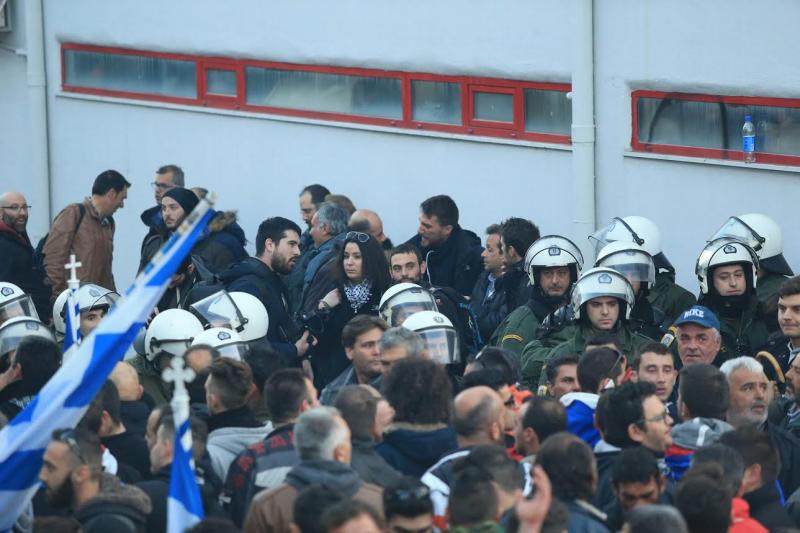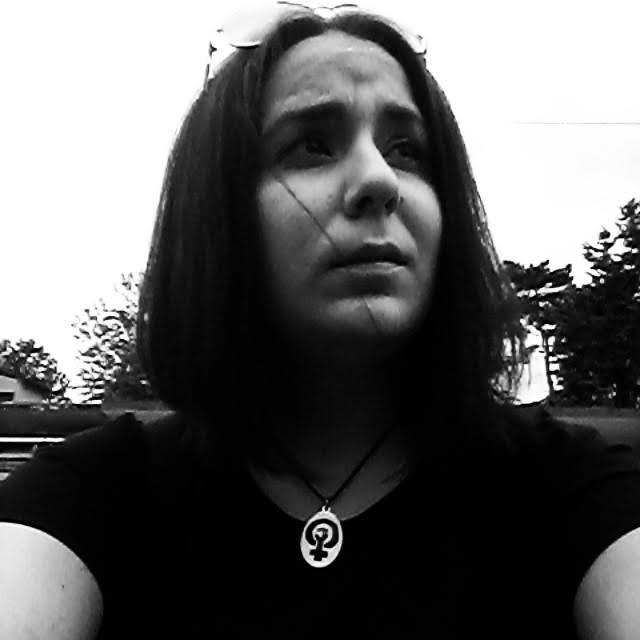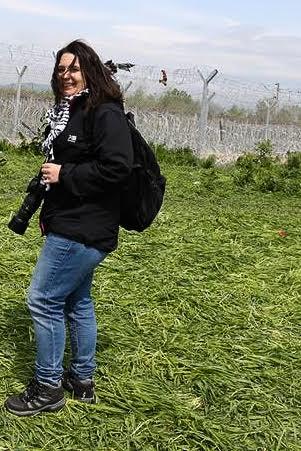Without Borders and Barriers
“Don’t give up fighting because the struggle is not over; it has just begun”. – Marianna Karakoulaki
Since the summer of 2015, Idomeni, a village at the Greek-Macedonian border, has increasingly turned into a site of the largest unofficial refugee camp in Greece. At the end of May it was shut down by authorities. For a year now, Marianna Karakoulaki, a young woman originally from a small town in the north-western part of the country has been covering the refugee crisis in Idomeni as a freelance journalist.

Marianna has also been covering social protests and riots, mostly from Thessaloniki where she has been living for the past couple of years. Reporting for several media outlets, including Deutsche Welle (DW), IRIN News, and the Middle East Eye, she additionally produces TV reports, recently being part of a Channel 4 News production: Macedonia: tracking down the refugee kidnap gangs which has won several awards including ‘TV News Story of the Year’ from Foreign Press Association in London.
Feminism, a red thread
“I absolutely and without any doubt identify as a feminist, it’s part of my identity along with being an atheist and a leftist.” – Marianna Karakoulaki

Throughout Marianna’s experiences, education and work, feminism has been a red thread throughout her life. She feels she has “always identified with feminism, without actually knowing what it was”, from her teen years and all through her Master’s degree studies in International Security at the University of Birmingham, United Kingdom. Marianna has countered occasional bouts of depression, and alongside studying about movements and the struggle for equality, feminism has inspired and given her a new approach to “pretty much everything”.
“It [feminism] entirely changed my academic focus, political ideology, and general approach to life. That is the reason I always wear a necklace with the feminist fist.” - Marianna Karakoulaki

In her work, Marianna tries to focus on feminist subjects aiming to give voice to those on the margins especially in Greece seeing “gender related issues are either ignored or not covered as they should be.”
But even though she has been reporting about the refugee crisis for the past year, she has been, as she tells us, deliberately avoiding writing a story on refugee women.
“The main reason for that is that I don’t really want to intrude in refugee women’s lives just for the sake of a good story; I have heard some stories that would have been worth publishing, but for a reason it never felt right as these people are in a vulnerable position. Their voice needs to be heard but there is the right moment for that and for me this is when they finally reach a safe space where they are protected.” - Marianna Karakoulaki
A bit more about Marianna
In her current academic work, she is one of the directors and editors of E- International Relations (E-IR), an online academic publication, where she is currently editing a book on migration in the 21st century due to be published in late 2016. Marianna has also taught at several workshops in Greece on gender equality, gender issues, and the diversity of feminisms and has written papers and articles on abortion rights specifically in the United States of America, as well as about feminist and women’s issues in the Middle East.
Marianna joined AWID as a member because:
“I joined AWID as it’s an organization where its priority areas are very close to my ideology and focus, plus it is giving a voice to those in parts of the world that cannot be heard, and I like that.”
And in answer to the question “what change would you like to see in your lifetime?” Marianna responded:
“If I had to choose a change that I’d like to see in my lifetime, that would be equality that will come from a bottoms-up approach; that will demand time, effort, and devotion. It will also demand a re-approach of the movements’ tactics and strategy. I also have a utopian dream of a world without nations and borders based on self-organisation, but that is rather impossible.”
